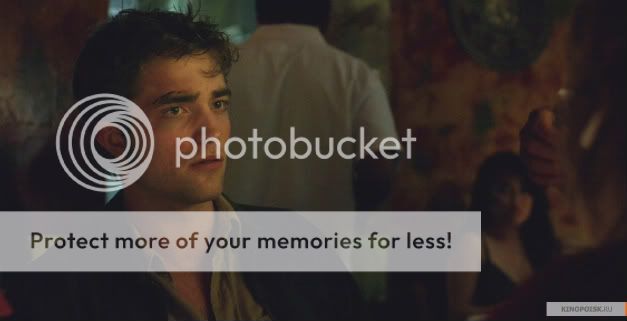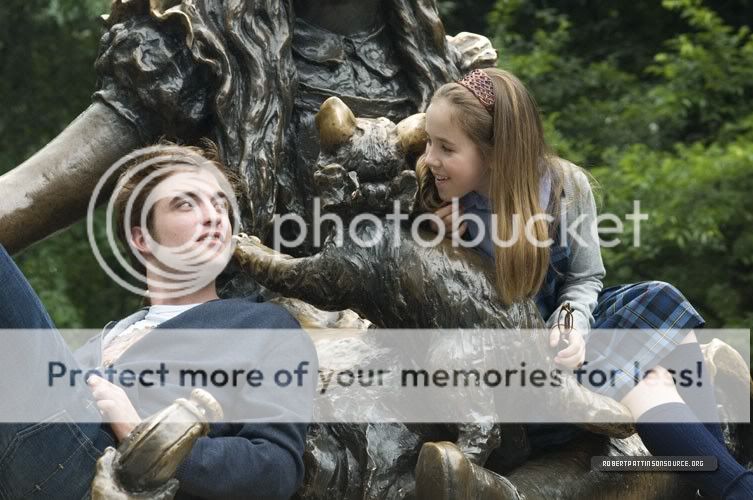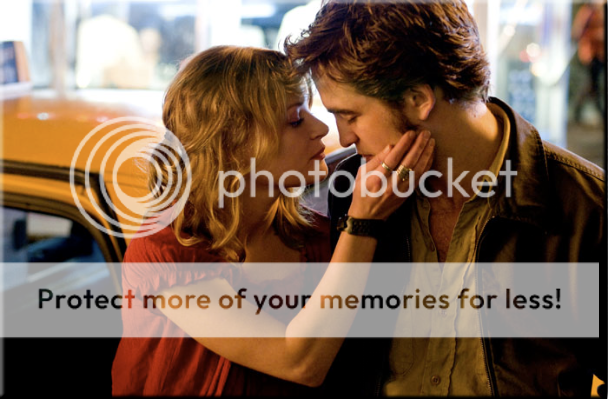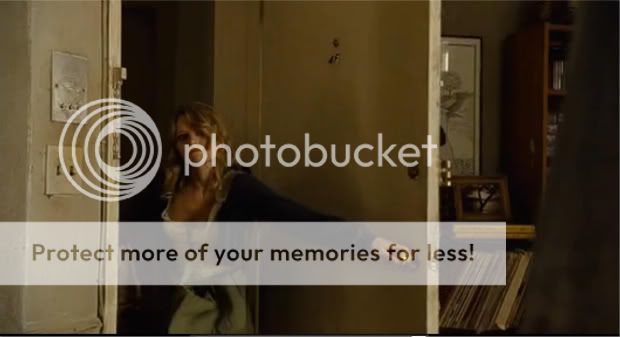Our frequent contributor Jessegirl has written another wonderful article for us. This article, part one of two, looks at Robert Pattinson and his Remember Me experience.
-by jessegirl August 1, 2010
“As an actor, you can elevate the human condition or cheapen it.
I would assume it’s the same with anything you do-
you try to elevate and maybe someday you will.”
-Robert Pattinson, speaking to Jenny Lumet for Details, March 2010.
 Working Conditions:
Working Conditions:The summer of 2009
Remember Me was shot on location in NYC. Thanks to modern technology like Twitter, paparazzi and fans swarmed every outdoor locale, from the University to Central Park. Video and still cameras shot every move Pattinson made in public and these hounds were as intrusive as NYC ordinances allowed, to the dismay not only of the star but also of the beleaguered director and bewildered crew. Pattinson’s fans lined the streets, cell phones poised, and eagerly awaited his exits from his trailer; Brosnan and Ellington both reported that everyone knew from the screams when Robert was coming to work. There are countless photos of him walking to and from the set escorted by half a dozen burly guards. Others of him with his head down, trying to salvage the tiniest bit of privacy, which amounted to that square foot of cement directly under his feet.
(Right about here is the place to show you what I mean. Ironically, the best way to illustrate the effect this had on the actor is to show you shots taken by the paps. I will not do that. I have full confidence in your imaginations. So, imagine it.)
For an actor, the ability to concentrate, to focus on your character and your lines, is paramount. Pattinson knew too that he was learning his craft. This twin intrusion from paps and fans, he admitted, drove him insane until he learned to mentally blank it out. It was a crazy and pathetic situation, but Pattinson handled it with grace. He was, as Brosnan said, the embodiment of grace under pressure (take note, Christian Bale).
But ask yourself, as you read this, how would you handle it if you were so intensely scrutinized at your place of employment, if you had no way to escape except into yourself? If you can imagine what it was like for him to be so besieged, are you sympathetic for his plight?
 Signing On:
Signing On:By 2009, after
Twilight’s success, it was assumed that Pattinson’s turn as Tyler Hawkins had been orchestrated as a star vehicle for him. It was not. If critics had done their homework they would have known that Pattinson signed on to the project long before
Twilight’s release, before his fame. He’d been reading countless scripts and read “
Memoirs” (
Remember Me) in a car park. In video interviews on the
Remember Me junket he said he’d read about 50 scripts, and this one stood out. The young male protagonist seemed complex and would give Pattinson lots of rich emotion to work with. The script flowed naturally, the dialogue rang true and the relationships seemed real to him.
“There was something so powerful about it, when I first read the script,” he told On The Red Carpet’s George Pennacchio.
Nick Osborne, the producer, and Allen Coulter, the director, heard Pattinson was interested and they met with him. The men were ‘all on the same page’ on the project. So Pattinson signed on. And then
Twilight came out.
But after Edward Cullen made his screen debut, everyone was watching and wanting and expecting the moon from Robert Pattinson. An interesting article: “Hollywood is Watching: Can Robert Pattinson Open a Film?” came out which laid out Hollywood’s modus operandi—set them up and pull them down—and its target was Pattinson.(
Remember Me Saturday:Can Robert PAttinson Open A Film?)
Pattinson admitted what anyone would in his situation. In another video interview he said it is
“difficult to learn when everyone is expecting you to be number one...it is quite worrying”. It’s actually cruel. Unfortunately, Hollywood, the media, and the paps, don’t care.
Where did that tiny square of cement go?
 Why make films?
Why make films?Apart from the much told story about acting being a way to meet girls, Pattinson’s reasons for acting are, according to him, very personal. He said—in a number of
Remember Me junket video interviews—that he picks roles which help him develop as a human being, which are cathartic and a sort of therapy. Whether one believes this idealistic view or not, this man can think up a storm. And his commitment to
Remember Me reveals a man with integrity.
He is committed to making quality films, so that his name ‘
will stand for something’, to eschewing money and fame. Now this sounds odd considering the
Twilight franchise, but it must be remembered that he signed on to that when that was a little indie film. Frankly, any astute actor knows the money from the blockbusters gives him freedom to pursue films which really matter. And smart actors are applauded for doing that.
In a recent interview (
moviesonline.ca )he said something interesting about career choices: “You try to make every little thing, you try to add something to it...I try to choose things which I think I can give something more to or help to elevate it to something.” There’s that word ‘elevate’ again.
 Sticking with “Remember Me”:
Sticking with “Remember Me”:
Remember Me had difficulty getting financing because it was not an easy story to pigeon-hole. The great ones never are. Pattinson said it “seemed like there was a reason it had been written and a reason it should be made”. Uh-huh. To put it mildly. He, Osborne and Coulter knew they had something special in Fetter’s story and they did everything possible to get it made properly. Their personal investment never flagged.
When Manny the Movie Guy interviewed them [March 10, 2010] asking about Pattinson staying with the role even after the Twilight fame, Fetters and Coulter confirmed Pattinson’s unwavering commitment to the project. Coulter said that there was never a question of Pattinson’s loyalty, and that he always watched the dailies. Fetters:
“It speaks to his integrity as an artist that he connected to the character and to the material and wanted to see it through...his commitment and the passion he brought...he was deeply serious about portraying this character.”
In fact, Pattinson’s commitment went beyond acting in the film. He is credited with the executive producership. Whoa! How often does that happen with actors this young? The thing we all have to realize is that Pattinson is no ordinary man, and that the others responsible for this film had much invested emotionally in it. They weren’t shy to use any and every way to make sure the story got told properly.

What Pattinson’s specific involvement was I’m not sure. He was in on script changes, even helped with the casting process (Emilie de Ravin), and tried to get it marketed as something other than a teen romance, to change a trailer which misrepresented it. As he told George Pennacchio (On the Red Carpet),
“I didn’t want it to be compromised in any way...so I said anything I can do...I want to do my bit to protect it.”Perhaps his role here was minimal but that he had one at all is salient. And, in his usual self-deprecating manner, Pattinson said he wanted them to put the credit
“in really small font”.
Clearly these men—Osborne, Coulter, Fetters and Pattinson—had a vision, undertook this project with passion, and would collaborate in unusual ways so that the result would be true to the story. This is something to admire in all of them, and this beautiful, profound film, is the result. (It has come to my attention that Meredith Milton and Eric Feig need to be mentioned as they got the Summit to put up the $16M production cost.)
Colleagues’ Experience of Pattinson on Remember MeIn print and video interviews the rest of the cast had nothing but good things to say about Pattinson. They all have a great deal of respect for him. And they should know, shouldn’t they?

Ellington tells Nicola McCafferty (OK.co.uk) that Pattinson was
‘as nice as can be’ and
‘utterly always so humble’. De Ravin talks about him bringing
‘intricate details to the character’, and that they both ‘shared the same amount of passion and need to do whatever we could to make this movie work’. Cooper stated that
‘Robert can deliver that sensitivity’. Brosnan felt like a father to him. He mentioned Pattinson’s executive producer gig in many interviews, obviously impressed with that he is
‘using this power, fame and fortune to good intentions...to find good material...and have a career that will be long-lasting’. They’ve all said a lot more but this will suffice for now.

We’ve already heard from Coulter and Fetters but to add to that, Coulter told Manny the Movie Guy that
‘we didn’t know that he’d be as good as he was. I thought, you know, I can get a good performance out of this young man...but he was extraordinary’. You may choose to believe that this is all part of the official view, designed to create a positive bubble around the film. Perhaps. You must decide. I choose to believe them.
Pattinson’s long-time friends and family support him and protect his privacy as much as they can. They don’t tell tales out of school. This regard and respect is significant.
Tyler
Tyler was going through the same transitional phase Robert was, from late adolescence to manhood (he says he chooses roles which cover the same things he’s going through at that point in his life). Yet Tyler was also a conflicted, complex guy, not at all the stereotypical character most scripts present. Therefore, Tyler was interesting. Pattinson knew right away how Tyler spoke.
“I had a voice immediately”, he said, and he thought he could add something to it.

Pattinson saw Tyler ‘not really living at the beginning’ but ‘by the end he accepts whatever will be’. On the DVD added feature, he says that Tyler
‘is a guy who is a little bit lost’ and that Ally
‘shows him how to live and how to mature’. He also talks at length about Tyler’s confrontation with his father in the boardroom. It’s funny how he sees his character. To Pattinson the boardroom scene illustrates ‘
grudges and grievances which he’s held for years...and they are just old’, and
‘he’s sick of the same rages’. Perhaps because we, the audience, witness only one such confrontation, it had a different meaning for me. I thought it was pivotal and actually affected Charles greatly.
In any case, Pattinson presented a character with subtle dimensions and great humanity, and he did it so well that audiences came to love the Tyler he showed us. Pattinson talks about it being an ensemble cast; well, maybe all the other actors, yes. But it is Tyler’s story; he is the linchpin, the centre, and must convince and win us over. This is a big role for the actor; really, he shoulders the thrust of the story. If we do not care about Tyler by that climactic ending, then what’s the point? But Pattinson does such a good job that we have the phenomenon of grown men, teenage boys, as well as women of all ages, crying for Tyler. Oh, he didn’t do it alone, for the entire cast was superb; all brought a believability and humanity to their characters as well. But his achievement should not be underestimated.
 The Performance
The PerformanceFrom his explosive outbursts in the boardroom and in the street fight, to the tender moments he shares with his little sister, Tyler is a multi-dimensional, complicated and sympathetic character. But whatever else he is doing, he is mourning his brother and using his journal to work through this grief. All of his actions are predicated on this overriding fact. Despite his vacant demeanour, he does not really brood. He is in pain and we see it. His vulnerabilities are so evident it is almost painful to watch—as in the scene where he shows Ally his tattoo—but then we see his emotional bravery too. It is not long before most of us are rooting for him. By the time he stands at the tower, we begin grieving too.
I could go over almost any scene to describe the excellent job Pattinson did to bring this character to the screen. Break it down. Point out the body language here, the facial expressions there, the reactions to the other characters. But I felt it necessary to address peripheral issues like the fans, paps, misapprehensions first, so I’ll save his performance for ‘Part Two’.
Critics were uneven in their judgement of Pattinson’s performance and too many brought up Jimmy Dean and brooding. First, all artists learn from their predecessors. Second, if Dean is to be referenced at all it would be to show that in this instance Pattinson has gone him one better.

Most critics who were positive seemed relieved to report that Pattinson can act at all, clearly of the opinion that his previous roles, and especially Edward, don’t count. That’s debatable too, given that so many critics have no idea what the character of Edward Cullen entails.
Kevin McCarthy, whose review of the whole film is excellent, thinks Pattinson "
delivers a very strong performance"[
http://www.bdkreviews.com/review.php?movie=rememberme]. And Jackie Cooper: “
The most important and fascinating part of the film is that you believe these characters...There is not one false not struck among them...Pattinson is totally impressive as Tyler.” [
http://www.jackiekcooper.com/MovieReviews/MovieArchive/RememberMe.htm]. Dustin Putman: “...
Pattinson, he is in full command of his leading role and never falters.” Uh huh.
Final Words...That Pattinson pulled out such a brilliant performance under the working conditions I described before is amazing. That he did it with so much grace is impressive. Given everything Robert Pattinson had shown us of himself, he is a decent man.
I know paps and fans camped out on his
Water For Elephants shoot but because of distances neither can violate his privacy and the work on set as happened in the summer of 2009 on the
Remember Me set. And recently, again, paps are making his private life hell so he cannot even walk down a street without their in-your-face gleeful violation. Is it too much to ask to treat him with decency? These men just ‘cheapen the human condition’.
Oh man, it sounds so old-fashioned, but if everyone would just treat him as they themselves would wish to be treated, maybe he could breathe. And not have to hang his head down, always searching for that elusive square of privacy. If Tyler Hawkins were the only character Pattinson brought to life, if his screen credits stopped right now, he would have achieved this goal of elevating the human condition. Such was the power of his portrayal, of the role, of the film.














































 Regards sur le film Remember Me
Regards sur le film Remember Me ...Remember Me Saturday
...Remember Me Saturday ...Spunk Ransom
...Spunk Ransom ...Let Me Sign
...Let Me Sign ...Thinking of Rob
...Thinking of Rob ...Emilie de Ravin Fan
...Emilie de Ravin Fan ...Dedicated to Emilie Blog
...Dedicated to Emilie Blog ...Gregory Jbara Official Web Site
...Gregory Jbara Official Web Site ...Respect Robert at LetMeSign.com
...Respect Robert at LetMeSign.com